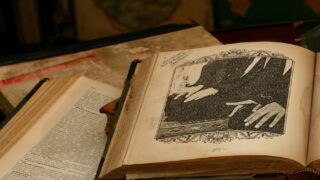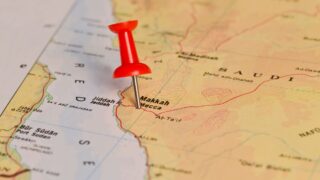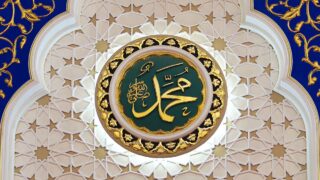No person had as much positive profound and sustained influence on human history as Prophet Muhammad (peace be upon him). Paradoxically, no prophet was unjustly maligned, as was Prophet Muhammad. Exposing and criticizing this long-standing prejudice, Karen Armstrong allocates a chapter in her book about the Prophet under the title “Muhammad: The Enemy”.
Some may argue that Prophet Muhammad is in no need of defense since he is neither guilty nor justly accused. This is true for those who firmly believe in him and feel that they have no need to affirm what they already believe.
However, this firm faith upheld by Muslims is insufficient to persuade a non-Muslim who demands a more persuasive argument other than mere faith pronouncements made by Muslims.
Furthermore, the Quran itself, in different places, defends Prophet Muhammad against various false accusations without implying that he is either guilty or justly accused. This makes it legitimate, if not incumbent, on the part of any objective researcher to examine these claimed prejudices and inaccurate characterizations before forming his or her opinion.
The Source of the Quran
I- The First Explanation of the Source of the Quran:
They said that Prophet Muhammad was the real author of the Quran.
This is perhaps the most common assumption about the source of the Quran. It is stated either explicitly such as “Muhammad wrote the Quran” or implicitly such as quoting a divine command in the Quran and attributing it to Prophet Muhammad (peace be upon him), such as stating that “Muhammad did not like some of his people’s practices such as excessive drinking and practicing female infanticide, so he told his followers to stop such practices”.
Such commands appear in the Quran as God’s commands not as the Prophet’s own conclusions and concerns. (See Al-Maida 5, 93; At-Takwir 81, 8)
Let us now examine the viability of this assumption:
1. Throughout his prophetic career, Prophet Muhammad (peace be upon him) clearly and consistently upheld that the Quran is not his word and that he received every word of it through Angel Gabriel.
To state, imply or insinuate that the Prophet was the author of the Quran instead of God is to belie him. This assumption is utterly inconsistent with his reputation that resulted in his people according him with the Arabic nickname “Al-Ameen”, meaning the truthful or the trustworthy.
When Prophet Muhammad began to receive the revelations of the Quran, his contemporaries were shocked, as they could not fathom how God could speak through humans via divine revelation. While some of the Makkans rejected his pronouncements as the Prophet of God, they did so not because they lost their trust in his truthfulness. They rejected him because of a number of possible reasons.
Some rejected him due to their perceived impossibility that God would communicate His divine message through a human being. Others rejected him because of the perceived threat of his egalitarian teachings to their privileged status in society. Still others rejected him because of their captivity to their customs and traditions. However, none of his detractors is known to have claimed that Prophet Muhammad ever failed to speak the truth, not even his staunch opponents.
2. The Quran is a book that changed people and history.
It was and still is a source of guidance and inspiration for hundreds of millions of people around the world.
Many discerning scholars from other faith communities rejected the prejudicial and polemical negative statement about the Quran and expressed their admiration of it. The same appreciation of the Quran, contents and style, was expressed in his lifetime, not only by his followers but also by his opponents as well. In such a case, it would have been more logical to expect Prophet Muhammad to claim credit for it if indeed he were the author.
It is common for many skeptics, when they see a great book, they don’t hesitate to challenge its claimed author to prove that he is indeed the author and that he did not commit any act of plagiarism to glorify himself. However, it sounds illogical to ask the Prophet, who disavowed authorship of such a great book and denied any credit for it, to prove that he is not its author!
3. There is no viable reason for Prophet Muhammad to claim the divine source of the Quran if he were indeed its author.
People may make false pronouncements so as to benefit from such pronouncements. Leaving the question of his acclaimed truthfulness aside, we may ask: “what could have been his motive from doing so?’’ In addition, what gains could he have acquired as a result?
Let us examine some possibilities, remote as they may be:
Did Prophet Muhammad declare his prophethood for material gains?
This question may be answered by comparing his financial status before and after he stated that he had begun to receive the Quranic revelations. About the age of forty, Prophet Muhammad had no financial worries. He was a successful and reputed merchant with comfortable income. Furthermore, he was married to Khadijah, a rich businesswoman, who loved him so dearly that she placed her wealth under his disposal beyond his entitlements as her “business manager”.
Additionally, Prophet Muhammad was never known to be obsessed with accumulating wealth. On the contrary, he was always known for his unselfishness and altruism. Even, as a young boy in the custody of his uncle Abu Talib, he demonstrated dignity and unselfishness. As narrated in Ibn Ishaq: “Whenever food was served, Abu Talib’s children used to race to get what they wanted, not young Muhammad. That led his uncle to try to save some food for him to make sure that he had enough to eat.’’ His wife Khadijah, who knew him best, made testimony about such quality.
After receiving the first revelation and expressing his fears: (that something may happen to me), Khadijah had no hesitation to assure him (Never! By Allah, Allah will never disgrace you. You keep good relations with your kith and kin, help the poor and the destitute, serve your guests generously and assist the deserving calamity-afflicted ones.) (Sahih Al-Bukhari)
Now, we may ask: what financial benefits did he achieve because of asserting that he was the messenger of God? All available information show that he became worse off financially since he and other believers were subjected to harassment and boycott for the entire Makkan period lasting for thirteen years.
Even after immigrating to Madinah, where he was accepted by all as the head of that city-state, he chose to live in poverty. His wife Aisha narrated that two months would elapse without fire being lit in the Prophet’s household (to cook a hot meal), while members of his household survived mainly on a staple of dates and water with occasional gift of milk from their neighbors.
In another narration, Aisha reported that the Prophet and his family never had their full of bread for more than two or three days. Al-No`maan Ibn Basheer stated, “Surely I saw your prophet unable to find enough low-grade dates to fill his stomach”. The Prophet’s bedding was made of pillow stuffed with palm leaves and animal skin spread on the floor. Even after the victories he achieved and at the time of his death, his armour was held as collateral with a Jew for some barley that the Prophet bought from him.
Surely, Prophet Muhammad could have easily lived much more comfortably or at least he could have continued his comfortable life before his call. Not only was he worse off financially after his call, but it is also obvious that he purposely chose a simple life of poverty when he could have lived like a king. Perhaps this was his way of identifying and sympathizing with the poor and needy.
Did Prophet Muhammad declare his prophethood for personal power and leadership?
Instead, he used to retire to the cave of “Hiraa’” on the top of the mountain to reflect on Allah’s creation seeking to discover the truth that resonates with his innately pure and upright nature. There is no indication that the Prophet aspired to become a leader, let alone a great prophet.
That fact was stated clearly in the Quran and his adversary were not reported to have challenged its accuracy. In the Quran, we read: {And you [O Muhammad] had no hope that the Book [the Quran] that We inspired in you, but it is a mercy from your Lord, so never be a helper to those who reject faith in Allah}. (Al-Qasas 28:86)
The Prophet’s reaction to receiving the first revelation in the cave of “Hiraa’” may also be revealing. If indeed the Prophet had any ambitions to become a prophet, he would have come from the cave happy and jubilant that his supposed “dreams” were finally coming to fruition. His reaction, however, was the opposite of that. He ran to his wife Khadijah trembling and terribly worried if the one who spoke to him in the cave was an evil spirit. This is not only a historical narration. (Sahih Al-Bukhari)
It was alluded to in the Quran (73:1-5 and 74:1-7) with no reported denial of his contemporary detractors. The proposition that the Prophet was after either personal material gains or power or both seems illogical and contradictory to available historical Information.
In the early Makkan period and at the outset of his mission, the Prophet was offered both on a silver platter. He was offered money, power and leadership and more just in return for his criticism of idolatry. His answer was unhesitant, uncompromising and firm: (… if they place the sun on my right hand and the moon on my left hand on condition that I give up this matter [his mission], I will never do so until either Allah makes it manifest [and promulgated] or I will perish defending it.) (Khaatam Al-Nabiyyin, 535-7)
For any seeker after wealth or power, this offer is beyond his dreams. It is a huge carrot that does not even require giving up one’s belief or right to worship.
For the Prophet this generous offer was not only a huge carrot, he was also keenly aware that there is also a huge stick ready to strike at him, his family and his followers and possibly assassinate him. Outright rejection of such temptations and readiness to go through suffering and deprivation, as transpired later on, is a clear indication that he was unmistakably clear about his mission as God’s messenger no matter what sacrifices it may have taken.
Was Prophet Muhammad a likely author of the Quran?
In spite of his many watchful enemies seeking to discredit his pronouncements, none of them is known to have challenged the accuracy of this clear Quranic pronouncement. Furthermore, there is no known credible historical narration indicating that up to the beginning of his mission at the age of forty, the Prophet was known to have authored any work or was notable as a poet or orator. To assume that he started all of a sudden to “author” such a significant and influential book like the Quran is utterly unreasonable.
II- The Second Explanation of the Source of the Quran:
They said that Prophet Muhammad must have learned the Quran from another person , specifically Jews and Christians:
Like the first supposed explanation, this second explanation is also common and is expressed explicitly or implicitly. The main argument to support it is that there are several “parallels” between the Quran and the Bible.
Since the Bible was in existence for hundreds of years before the Quran, then these parallels signify that the later book [the Quran] must have drawn such information from the earlier book [the Bible]. It was argued, furthermore that throughout his travels especially with commercial caravans, Prophet Muhammad (peace be upon him) must have heard or learned about the notion of the one God, prophets and other Jewish and Christian teachings. Through these sources, it is claimed that he formulated his new religion.
This claim is a mere assertion or assumption rather than a factual statement. However, as Dr. Abdul Latif Tibawi, Palestinian historian and educationalist, notes: “by sheer repetition and wide circulation this assertion and the far-reaching judgments based on it, it was elevated to the dignity of facts.”
An example of such assertions was made by the Scottish historian Montgomery Watt: “Islam would have to admit the fact of its origin, the historical influence of Judaeo-Christian traditions.” Commenting on this statement, a historian says: “Here the question of (origins) is taken as settled and referred to as a (fact) without any qualification or discussion”. (Tibawi, 22)
There are least…. arguments to challenge this common assumption:
1. Such a sweeping generalization implies that the most authoritative and authentic source of Islam; the Quran originated from human sources or at best existing scriptures and not from God in the form of direct verbatim revelation to Prophet Muhammad.
This assertion is contrary to the internal evidence in the Quran, which is echoed in Hadith as well.
Furthermore, it also implies that the Prophet’s pronouncements about the divine origin of the Quran were untrue, a matter which was negated earlier in the paper in view of the prophet’s undisputed truthfulness and integrity.
2. Historians admit that the similarity between the two compositions (The Bible and the Quran) does not necessarily imply that the later must have copied from the earlier. Both compositions may have been based on a third common source.
An example of that in Biblical studies is the “synoptic” problem which attempts to explain the similarities between the three “synoptic gospels”, Mark, Matthew and Luke. According to the Quran, God is the One Common Source of all revelations given to His prophets, and hence the similarities in their teachings.
3. Similarities between successive revelations to different prophets do not disqualify any of them as a genuine and truthful prophet of God, nor do they disprove that all prophets received direct revelation from God. After all, the genuineness of Prophet Jesus (peace be upon him) cannot be negated or even questioned because most of his teachings are “parallels” to previous Hebrew Scriptures. In fact, he did make explicit mention of previous scriptures to show the continuity and consistency of the core message of God, just as the Quran did. (Al-Maidah 5: 32)
In fact, there are similarities between some Judaic teachings and the teaching of ancient religions like Hinduism such as many aspects of moral law. Such parallels do not mean that prophet Moses (peace be upon him) and all other Israelite prophets were copying from one another or from other human sources rather than being all inspired by The One and Only Divine source; God. The Quran affirms: {Surely We [Allah] sent revelation unto you [O Muhammad] as We did upon Noah and the prophets after him, and as We sent revelation upon Abraham and Ishmael and Isaac and Jacob and the tribes, and Jesus and Job and Aaron and Solomon, and as We gave David the Psalms”.} (An-Nisaa 4:163)
4. The “parallels” argument seems to place two types of “parallels” in the same bag; parallels relating to the core message of God which is at the heart of all divine revelations which were preserved intact, and perceived parallels which are not so in reality.
The discussion focused so far on the first type of parallels. However, some of the perceived parallels are not parallels between two genuine revelations, but perceived parallels between the Quran and dogmas, theological concepts developed later on and influenced the interpretations of the Biblical text.
For example, the story of Adam and Eve and the Forbidden Tree in both the Bible and the Quran may appear broadly to be the same. On a closer look, however they do not have the same implications or agree on crucial points or even “facts”.
According to the Quran, Adam and Eve acknowledged their mistakes, prayed for forgiveness and were forgiven. As such, the Quran does not provide a basis for the notion of “original sin”, commonly founded on the Biblical version of the story. Likewise, the Quran blames both Adam and Eve equally for their infraction and does not consider women’s suffering during pregnancy and childbirth as punishment that is connected in any way with the “Forbidden Tree” incident.
5. The Quran was revealed in piecemeal manner over a period of about 23 years. Often times, revelations came in response to an issue, a problem, a question or an event in the life of the community. It is totally unreasonable, if not impossible, to make a convincing argument that throughout this extended period, Prophet Muhammad was learning from some secret teachers and evading all the watchful eyes of his critics and detractors in such an open community without being “caught”, even once, while doing so and for a period of 23 years.
In Madinah, the Prophet was surrounded constantly by his followers and mostly in public. If he were learning from others, how could his closest companions continue to believe him when he continued to affirm that the Quran he recited was purely God’s revelation?
All attempts to “discover” or even speculate about the unseen teacher [s], to explain the source of the Quran, were proven futile, illogical and un-historical.
6. It may be added also that the Prophet was raised in a predominantly idolatrous society for the first 13 years of his mission. Before he immigrated to Madinah, where some Jewish tribes lived, the Quranic revelations in Makkah had already articulated Muslim beliefs and the Quranic core truths. He was in no need to learn from them or from others. In fact, some Quranic verses challenged their contentions and claimed to supersede some of their earlier revelations. More than one prominent learned Rabbi (such as Abdullah Ibn Salaam and Ka`b Al-Ahbaar) accepted him as prophet/teacher.
III- The Third Explanation of the Source of the Quran:
The Quran as a product of delusion; epilepsy or religious imaginations.
It was contended that while Prophet Muhammad was sincere and truthful, he probably suffered from epilepsy and it was during his epileptic seizures that he uttered what came to be the Quran. Reference is made sometimes to the reported state of Prophet Muhammad at the times when he was visited by Archangel Gabriel to bring new revelations as reported in Hadith.
Scientific developments in the study of epilepsy made this speculation utterly unscientific. Epileptic seizures occur because of disruption to the normal functioning of the brain. During the seizure, the patient becomes incapable of sensible or even discernable speech. Once the epileptic seizure is over, the patient would have no memory of what happened to him or her during the seizure.
The prophet did not have any of the varieties of epileptic seizure, whether during receiving revelations or at any other time. After revelation was completed, he remembered vividly every word of it as if it were “engraved on a stone”. It is true that many figures of history were famous and talented in spite of their suffering from epilepsy.
This author is unaware of any historical precedent when any person made his most brilliant achievement because of his epilepsy and during its disabling seizures. To claim this is like claiming that Napoleon came up with his most brilliant war strategy during his epileptic seizures or that an epileptic artist painted his most brilliant drawings while going through the convulsions of epileptic seizures.
Equally untenable is to dismiss the contents of the Quran as religious delusion, hallucination or imaginations. Sometimes a good face is put on that contention such as praising the prophet for his pure innate nature that led him to be disenchanted with idolatry, injustice and moral corruption of his people, concerns that made him eager to help uplift his people.
With these noble feelings he began to “convince himself” that he is the person to be entrusted by God to carry this responsibility. With the passage of time, these ideas began to “jell” in his mind until it became a firm conviction at which time he began to imagine hearing voices from above and having “vision” relating to his prophetic role.
In fact, Andrae Tor, a Swedish scholar of comparative religion, speculated at length that the prophet probably had some “secret desire” to be famous. Yet, the same writer could not help but admit that the Prophet was not guilty of planning for his role as a prophet.
It is noteworthy that some of the proponents of such theories are not necessarily atheists who do not believe in revelation let alone God, but persons who hail from Jewish or Christian backgrounds whose own faith is based on acceptance of divine revelation given to prophets in some form or the other. If they apply the same arguments to their own faiths, it may lead to the rejection of the prophethood of all prophets and perceiving them simply as good persons who were all deluded in thinking that God was revealing to them or guiding them.
Imagine that Prophet Moses (peace be upon him) being deluded that God spoke to him on Mount Sinai or gave him the Torah, or Prophet Jesus (peace be upon him) imagining only that the “Father” revealed to him what he taught his people? If revelation is mere illusion, then it must be applied across the board and not selectively. Similarly, if the “phenomenon” of revelation, beyond full human grasp as it may be, is accepted, then it should be accepted across the board as a reasonable “phenomenon” irrespective of debates about which part is original and which is interpretive, or which part was preserved intact and which was not.
Conclusion
This paper began with a more ambitious objective, to examine various objections to the Prophet Muhammad. The paper, addressed so far, only one central issue; the truthfulness of his prophethood. There are other important issues that need to be addressed as well, such as his life and actions, including marriages, how did he deal with those who opposed him or fought against him and other related issues.
By Jamal Badawi


















